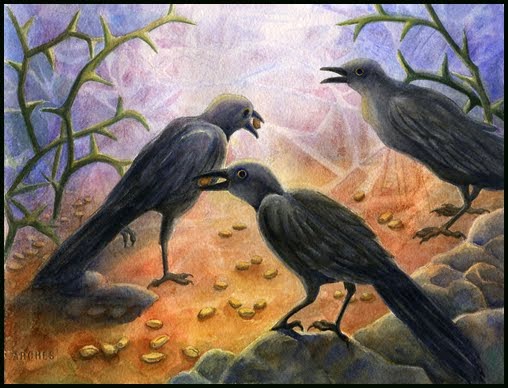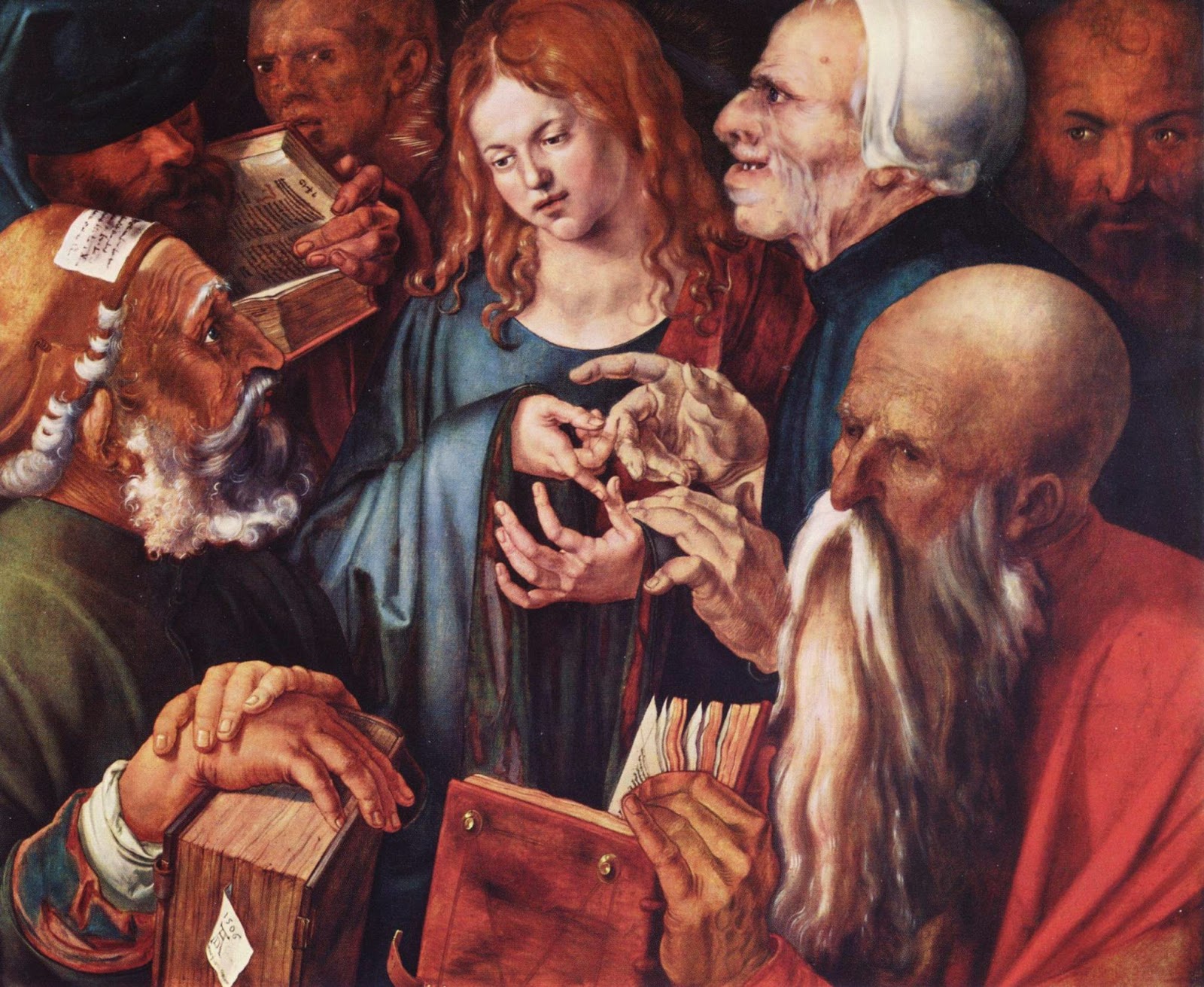 |
| Blake |
3rd, 4th February Trinity
(Sunday after Ash Wednesday)
Matthew 4: 1-11
Then Jesus was led by the Spirit into the loneliness of
the desert to experience the tempting power of the adversary.
After fasting forty
days and nights, He felt for the first time hunger for earthly nourishment.
Then the tempter came to him and said, “If you are the Son of God, let these
stones become bread through the power of your word.”
Jesus answered, “It is written, ‘The human being shall
not live on bread alone; he lives by the creative power of every word that
comes from the mouth of God.’”
Then the devil took him to the holy city and had him
stand on the parapet of the temple. “If you are the Son of God,” he said,
“throw yourself down. For it is written, ‘He will command his angels concerning
you, and they will lift you up in their hands so that you will not strike your
foot against a stone.’”
Jesus answered him, “Do not put the Lord your God to the
test.”
Again a third time, the devil took him to a very elevated
place, and showed him all the kingdoms of the world and their splendor. “All
this I will give to you,” he said, “if you will bow down and worship me as
your Lord."
 |
| Botticelli |
Jesus said to him, “Away from me, Satan! For it is
written, ‘You shall worship [pray to] God your Lord who guides you and serve
him only.’”
Then the adversary left him, and he beheld again the
angels as they came to bring him nourishment.
3rd February Trinity
(Sunday after Ash Wednesday)
Matthew 4: 1-11
.jpg) |
| Monreale |
We are spiritual beings living in earthly human bodies.
Over the course of the ages, these bodies have become ‘infected. ’ To use a
computer analogy, it is as though adversarial beings have inserted various viruses
into our human constitution. They have so-to-speak’ corrupted our files’. They
are attempting to commandeer them in order to make us do things not originally
intended by the Maker. Jesus is our security adviser. He helps us figure out
how to work around the problems.
First we are not to pay attention solely to the earthly
side of things. We are to recognize that we are nourished not only by bread,
but also by all that we take in of
the earthly. But most importantly we are nourished and sustained by the
intangible creative Power behind all that is, the very Source of our existence.
By contrast we are also not to rely solely or foolishly
on the heavenly either. We are to use our earthly judgment and sense of
responsibility, our capacity of clear thinking. If we keep visiting those
internal sites of infection, if we listen to the illusions of pride, we will
fall. We are not to put the heavenly world to the test.
And furthermore, we are to recognize and distinguish
clearly between God and the adversary’s infections. We are guard against illusion
and delusion. We are to serve and follow the Original Source.
The poet Denise Levertov describes our human condition,
our position between heaven and earth:
Days pass when I
forget the mystery.
Problems insoluble and problems
offering
their own ignored solutions
jostle for my attention, they
crowd its antechamber
along with a host of diversions,
my courtiers, wearing
their colored clothes; cap and
bells.
And then
once more the quiet mystery
is present to me, the throng's
clamor
recedes: the mystery
that there is anything, anything
at all,
let alone cosmos, joy, memory,
everything,
rather than void: and that, O
Lord,
Creator, Hallowed One, You
still,
hour by hour sustain it.[1]



.jpg)




.jpeg)





